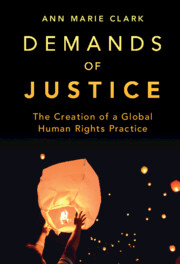This article examines the changing status of constituent power in contemporary constitutionalism. It considers how, at face value, contemporary constitutional law reflects a post-constituent constitutional order, which is defined by a rupture with classical constitutional principles, such that the extra-legal source of constitutional order is diminished. However, it argues that the common perception of a decline in constituent power in constitutional norm construction is marked by an excessively literalistic understanding of the origins of constitutional norms and practices. As an alternative, drawing on systems-theoretical methodologies, the article proposes a functionalist, sociologically attuned reconstruction of the historical content of constitutional concepts, including the concept of constituent power. Through this perspective, it explains that constituent power, in conjunction with constitutional rights, always acted, not as an externally founding source of political agency, but as an inner projection of the political system, which served the internal organization of the political system as a distinct societal domain. The article concludes that the transnational constitutional models which are widespread in contemporary society, far from negating constituent power, re-articulate its primary functions, and they realize potentials for preserving the autonomy of the political system which constituent power always contained.


